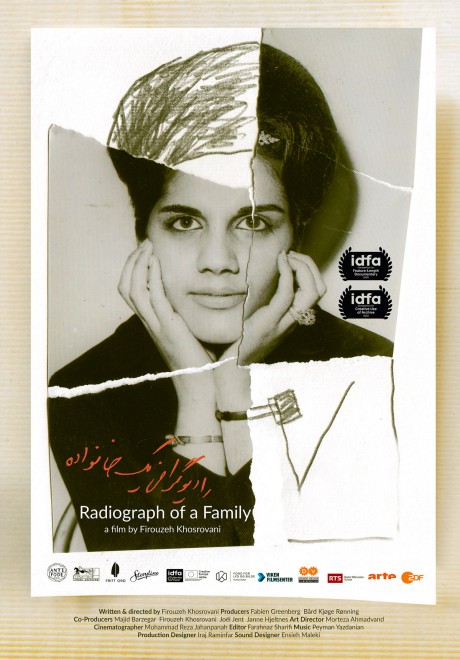


Firouzeh Khosrovani: Radiograph of a Family

It’s a scoop to have the constant tableau-like returns to the room in the house in Tehran. It’s beautiful to look at – in the beginning I associated to Danish Hammerhøi and his paintings of interiors – here (except for the ending of the film) without human beings. A white room that changes as the life of the director and her parents change in Iran. A white room of memories. Like a stage where a painting of a naked woman is taken down and the double bed disappears. Where mats for praying become visible and glasses with wine are away from the table. The returns serve as pauses for reflections from the photos and archive footage that form the backbone of a family story that is told voice-off by the director and through constructed dialogues between father and mother.
They married while he was studying in Geneva and she was in Tehran. She moved to Geneva to be with him, where she as a religious person „saw sin all over“ in the happy sixties, refrained from drinking and partying as her Mousieu husband – they speak French in Geneva and she could not find the right pronunciation for Monsieur.
When Firouzeh is born, the couple moves back to Tehran, and if she felt lonely abroad, she now gradually gets involved in the revolutionary movement that led to the fall of the Shah. She became a disciple of Shariati, who was an important revolutionary sociologist. She got important educational positions in the Islamic country, whereas her father found meaning in art and music. And in being with his daughter.
The film builds very much on photos taken by the father and archive material from Geneva but also from Iran – military training for the mother and other veiled women, riots in the streets. Look at the poster… in a scene you hear the mother tearing photos apart of herself without veil, she wants to destroy memories from her non-religious past… On the wall there is now an imaginative painting of the father holding his daughter, the director…The mother, still alive, sitting in the room asks her daughter to hand her the Quran…
Norway, Iran, 2020, 82 mins.